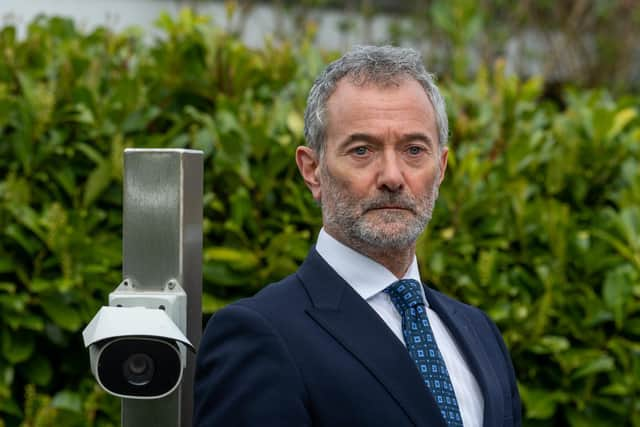Post Office Horizon scandal shows why it's folly to say 'if you’ve done nothing wrong you’ve nothing to worry about', says surveillance camera commissioner Fraser Sampson
Fraser Sampson, a former Yorkshire police officer who is now the UK's independent Biometrics and Surveillance Camera Commissioner, said the saga proved the folly of the phrase 'if you’ve done nothing wrong you’ve nothing to worry about'.
He wrote in his blog: "A tragic example of the argument’s terrible consequences can be seen in the recent case of the wrongly convicted Post Office workers, some of whom had sadly died before eventually convincing the State that they’d ‘done nothing wrong’."


Advertisement
Hide AdAdvertisement
Hide AdLast month 39 subpostmasters who were convicted and even jailed based on data from a defective accounting system had their names cleared in court.
Between 2000 and 2014, the Post Office prosecuted 736 sub-postmasters and sub-postmistresses - an average of one a week - based on information from a recently installed computer system called Horizon.
Some went to prison following convictions for false accounting and theft, many were financially ruined and have described being shunned by their communities. Some have since died.
After 20 years, campaigners won a legal battle to have their cases reconsidered, after claiming that the computer system was flawed.
Advertisement
Hide AdAdvertisement
Hide AdMr Sampson, a Sheffield Hallam University academic who has worked in the offices of West and North Yorkshire's police and crime commissioners, was also an officer between 1982 and 1996 for West Yorkshire Police and the British Transport Police.
In March he took on his new role, which brings together the work done by his two predecessors, Tony Porter and Paul Wiles.
As surveillance camera commissioner, his role is to encourage compliance with the code of practice and review how well it is working.
As biometrics commissioner, his job is to keep under review the retention and use by the police of DNA samples, DNA profiles and fingerprints, as well as deciding whether police can retain them to help them solve crime.
Advertisement
Hide AdAdvertisement
Hide AdHe wrote in his blog: "The proper role of technology in surveillance calls for balance, not only of what’s possible against what’s lawful, but increasingly alongside what we find acceptable.
"Societal acceptability is the ground where the accountable, ethical and legitimate use of surveillance technology is being shaped.
"In that shaping we would do well to resist placing too much reliance on technology, to underscore thoughtful leadership and to reinforce the role of independent oversight of ‘surveillance’ systems, whether they rely on biometric databases, traffic cameras or, as in the case of the profound injustices to the Post Office workers, employers’ accounting records."
And he criticised the oft-used phrase of “if you’ve done nothing wrong you’ve nothing to worry about” as being "not the answer to legitimate public concern over surveillance".
Advertisement
Hide AdAdvertisement
Hide AdHe said: There are many reasons why - the absence of logical merit, ethical legitimacy and legal validity being but three. Yet the argument still seems to find support in repetition."
And he added: "When rebuilding by the light of the embers of World War II, the architects of the society we now enjoy made sure that we can live in a mature and tolerant democracy, free from arbitrary interference from the State.
"Repeating the 'if you’ve done nothing wrong…' mantra means you accept that privacy and freedoms of assembly, speech etc. are enjoyable, not as inalienable rights, but only at the pleasure of the State.
"In a democratic society governed by the rule of law isn’t it for those intruding on fundamental rights and freedoms to justify their doing so? In times of crisis the need for justification is arguably all the greater, in case we distractedly settle for a permanent lowering of the threshold in the face of temporary emergency."
